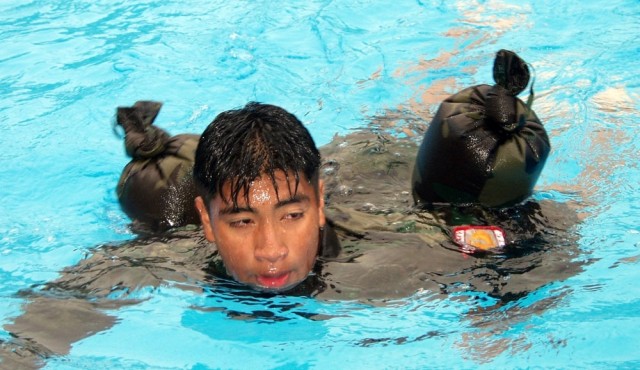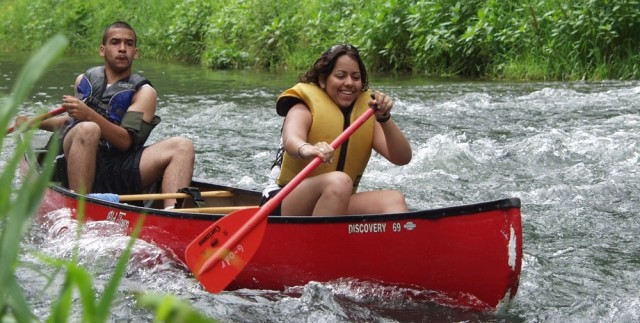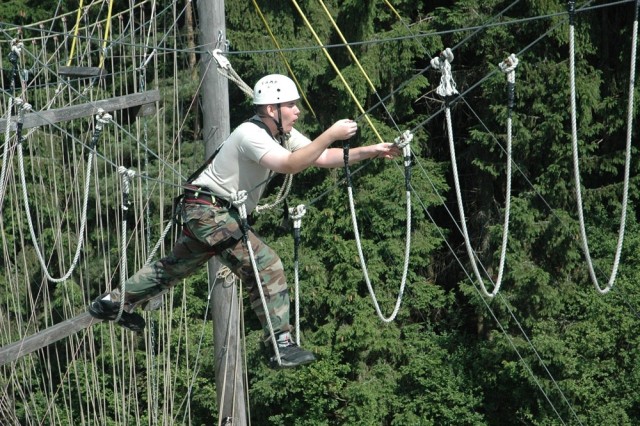GRAFENWOEHR, Germany - Asked what challenged her most during a Junior Reserve Office Training Corps event here, Alex Melendez responded in standard teenage fashion: "waking up early." Her follow-up comment, however, shows a growing maturity.
"Also...it's me being a leader, to have control and to make my platoon listen to me," Melendez said. "I like to take care of them."
Melendez - from Baumholder High School in Germany - was one of 117 cadets from 21 Department of Defense Dependent Schools in Europe who participated in a 10-day JROTC Cadet Leadership Challenge here June 17-27.
The camp is part of the Army JROTC program, created as part of the National Defense Act of 1916, which prepares high-school students for leadership roles by educating them of their rights, responsibilities and privileges as U.S. citizens.
Retired Maj. David Schwab, a senior JROTC instructor, labeled JROTC classes different from typical school courses as they "put more brainstorming and team-work techniques to use."
The annual camp, held in Grafenwoehr's training area since 1995, tests cadets physically and mentally in an entertaining environment. Coached by professionals, the teenagers mastered a number of challenges: drown-proofing exercises; canoeing; ropes course; rappelling and climbing; leadership-reaction obstacle course; and urban orienteering.
Additionally, cadets rotated their rank daily. "Some days they were followers, some days leaders," said Maj. Bob Hase, director of Army Instruction for DoDDS-Europe JROTC.
The resulting teamwork and emotional support proved crucial to completing each task successfully.
Of course, it certainly helped that each undertaking was akin to teenage adventure.
"I liked canoeing because of the rapids," said Bryan Michel, from Naples American High School in Italy. "I have never done something like that before."
"The high rope course was really challenging because I am afraid of heights," said ShaQuana Harmon, a second-year cadet from nearby Vilseck High School. "But I didn't want to give up - so I did it!"
"When I went up there, I panicked; I thought I am going to fall," admitted Melendez after completing the rope course "Everyone looked like little ants, but it also felt like, 'Oh, my God, I did it.'"
And, for the first time, cadets rappelled from a 60-foot tower normally used by Soldiers who train on Grafenwoehr's vast training grounds.
The tower has two levels, with the teens rappelling from both.
"The small one was scarier," recalled Ledesma, "because it is the first time you are doing it. You see the wall, you get nervous, but then it is all fine."
During the 10-day challenge, participants lost most of their hi-tech conveniences - Internet, iPods and cell phones.
"We (even) took their candy when they arrived," said Schwab, noting that the cadets substituted sodas for healthier drinks like milk, water and juice.
And as for sleeping in late, that had to wait until returning home.






Social Sharing